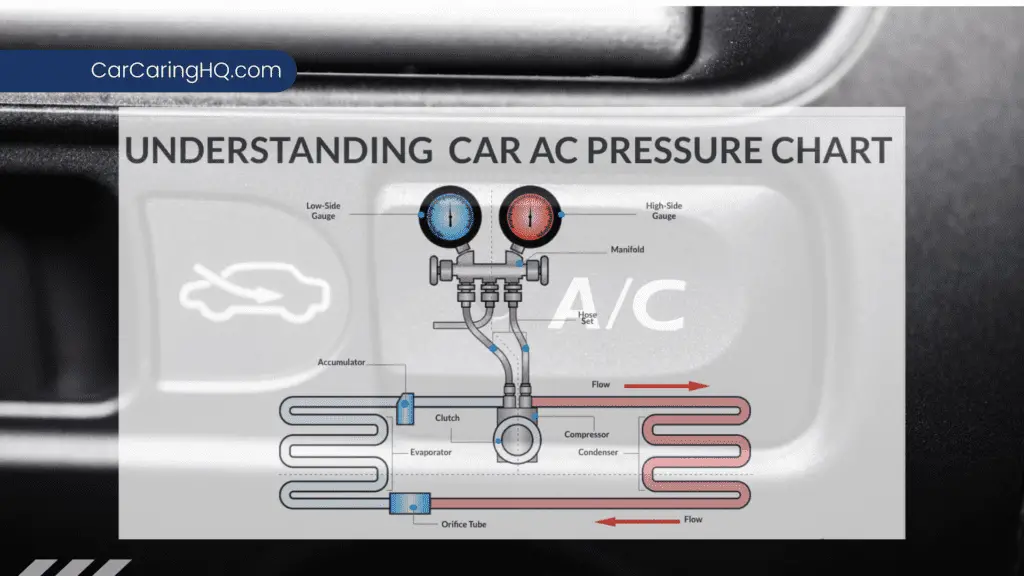The air conditioning system in your car relies on Freon to keep the air cool. Over time, the level of Freon in your car’s air conditioning system can decrease, leading to reduced cooling performance.
Checking the Freon level in your car is an important part of regular maintenance, but not everyone has a gauge to do so.
In this article, we will share some tips on how to check your car’s Freon level without a gauge.
Table of Contents
1. Look for Signs of Low Freon
The first step in checking your car’s Freon level is to look for signs of low Freon.
If your air conditioning system is not cooling properly or is blowing warm air, it could be an indication that your car’s Freon level is low.
In addition, if you hear hissing or clicking noises from the air conditioning system, it could be a sign of a Freon leak.
2. Check the Airflow
Turn on your car’s air conditioning system and check the airflow coming out of the vents.
If the airflow is weak or not as cold as it used to be, it could indicate a low Freon level.
If the airflow is strong and cold, your Freon level is likely fine.
3. Check the Pressure
If you have a tire pressure gauge, you can use it to check the pressure of the air conditioning system.
Start the car and turn on the air conditioning system to its maximum setting.
Open the hood and locate the air conditioning lines. There will be two lines, a high-pressure line, and a low-pressure line.
Use the tire pressure gauge to check the pressure of the low-pressure line.
The pressure should be between 25 and 45 psi. If the pressure is too low, it could indicate a low Freon level.
4. Check the Compressor Clutch
The compressor clutch is an important component of the air conditioning system.
It engages and disengages the compressor to regulate the flow of Freon.
To check the compressor clutch, start the car and turn on the air conditioning system.
Open the hood and locate the compressor. It will have a belt running around it. The clutch will be located in the center of the compressor.
If the clutch is engaged, it should be spinning. If it’s not spinning, it could indicate a low Freon level.
5. Use a DIY Freon Tester
You can also make a DIY Freon tester to check your car’s Freon level.
You’ll need a plastic bottle, a thermometer, and some rubbing alcohol.
Cut the top off the bottle and fill it with the rubbing alcohol. Insert the thermometer into the bottle and place it in the center air vent of your car.
Turn on the air conditioning system to its maximum setting and wait for a few minutes.
Check the temperature on the thermometer. If it’s between 32 and 40 degrees Fahrenheit, your Freon level is likely fine.
If it’s higher than that, it could indicate a low Freon level.

Signs of Low Freon in Your Car’s A/C System: How to Identify and Address the Issue
A properly functioning air conditioning (A/C) system is essential for staying comfortable while driving in hot weather.
However, over time, the Freon level in your car’s A/C system can become low, affecting its performance. the signs of low Freon in your car’s A/C system are :
1. Warm Air Blowing From Vents
One of the most common signs of low Freon in your car’s A/C system is warm air blowing from the vents.
This happens when there is not enough refrigerant to cool the air passing through the system.
2. Reduced Airflow
Low Freon levels can also cause reduced airflow from the vents.
This happens when the A/C system is not able to push enough air through the system due to low refrigerant levels.
3. Hissing or Bubbling Sounds
If you hear hissing or bubbling sounds coming from your car’s A/C system, it could be a sign of a refrigerant leak.
Low Freon levels can cause leaks in the A/C system, which can lead to these sounds.
4. Unusual Smells
If you notice an unusual smell coming from your car‘s A/C system, it could be a sign of low Freon levels.
Low refrigerant levels can cause the system to overheat and produce a burnt smell.
How to Address Low Freon Levels in Your Car’s A/C System
If you suspect that your car’s A/C system is low on Freon, there are a few steps you can take to address the issue:
1. Take Your Car to a Professional
If you are not familiar with A/C system maintenance, it is best to take your car to a professional.
A certified mechanic can diagnose and repair any issues with your car’s A/C system.
Also Read: GeoDrive Tires Review ~ Features & Advantage
2. Check for Leaks
If your car’s A/C system is low on Freon, it could be due to a leak in the system.
A professional mechanic can check for leaks and repair them if necessary.
3. Add Refrigerant
If your car’s A/C system is low on Freon, a professional mechanic can add refrigerant to the system to bring it back to the appropriate levels.
Conclusion
Checking the Freon level in your car is an important part of regular maintenance, but not everyone has a gauge to do so.
By following these tips, you can check your car’s Freon level without a gauge. Look for signs of low Freon, check the airflow and pressure, inspect the compressor clutch, and use a DIY Freon tester.
If you suspect your car’s Freon level is low, it’s important to have it checked by a professional. With these measures in place, you can ensure your car’s air conditioning system is working properly and keep cool during the hot summer months.
Checkout: Temu App







